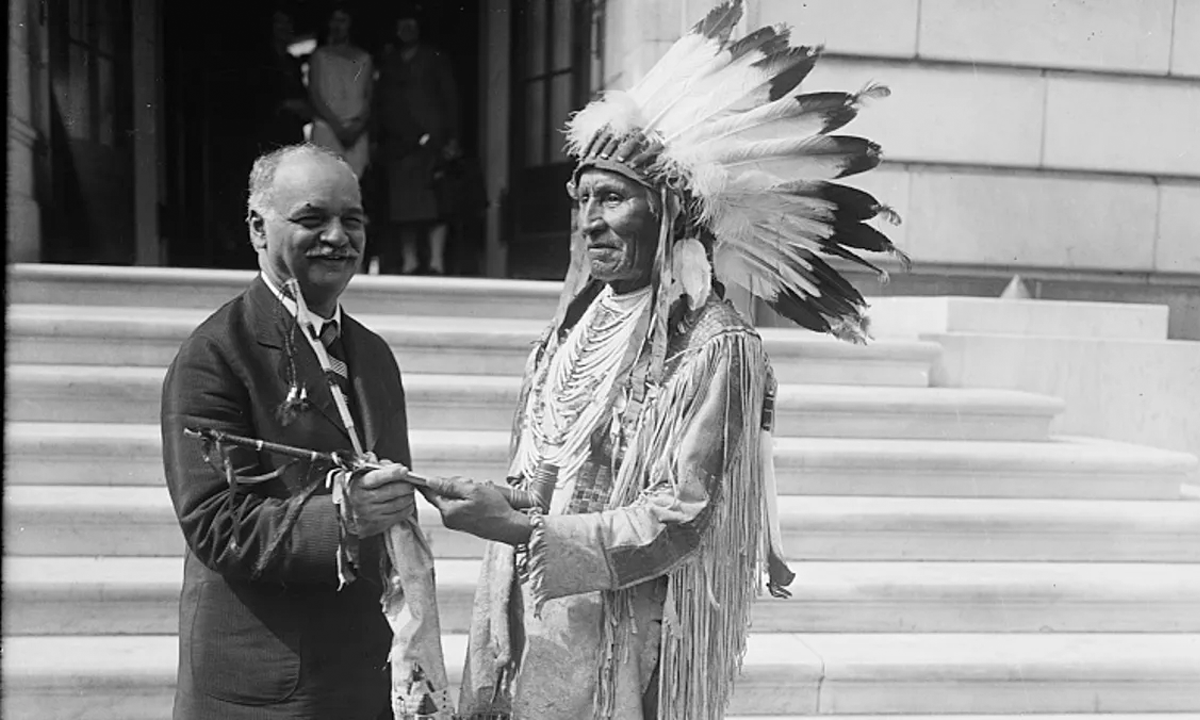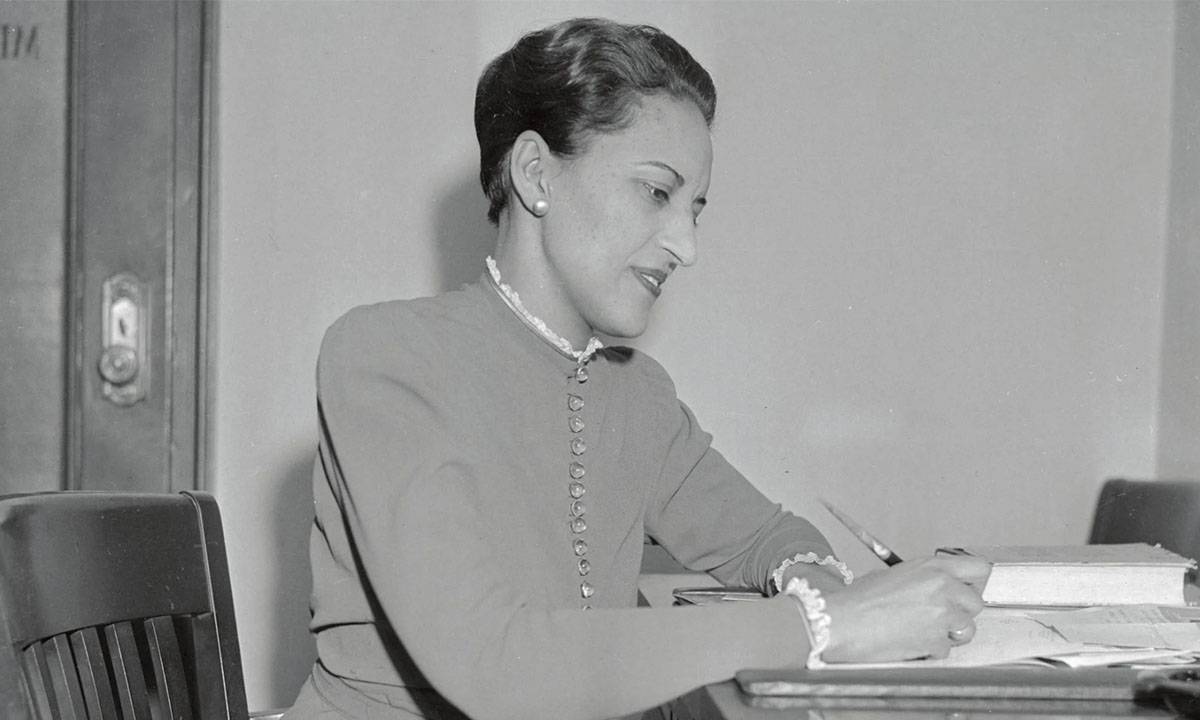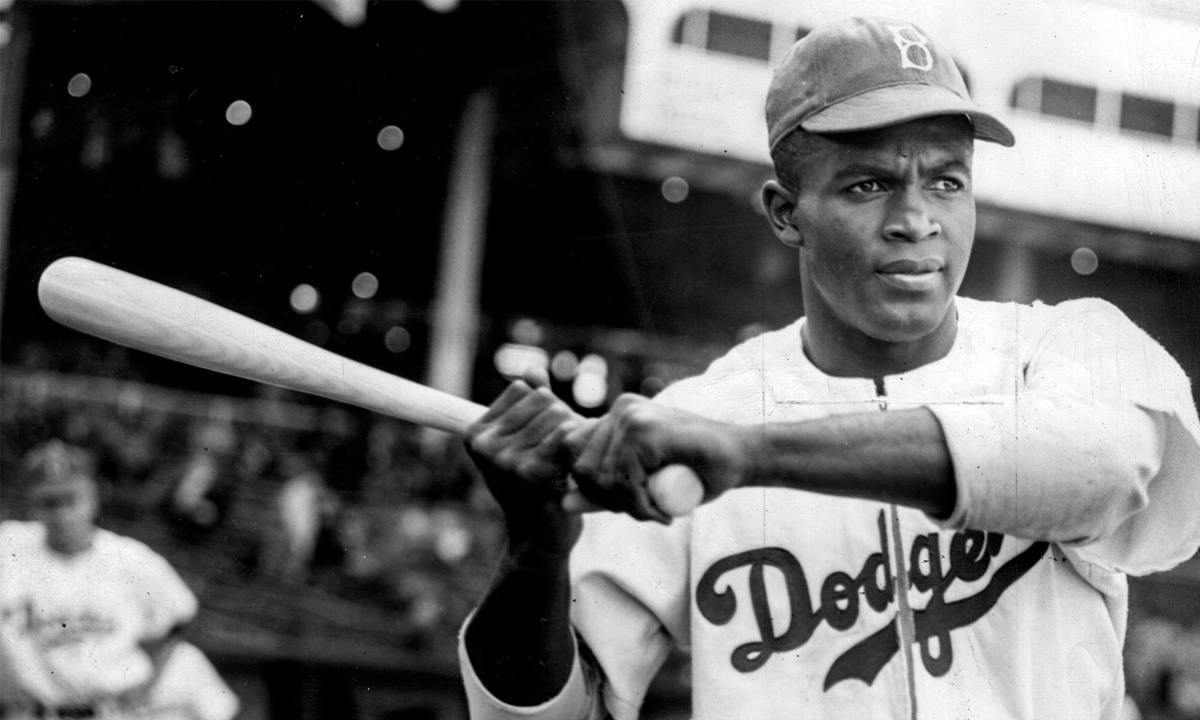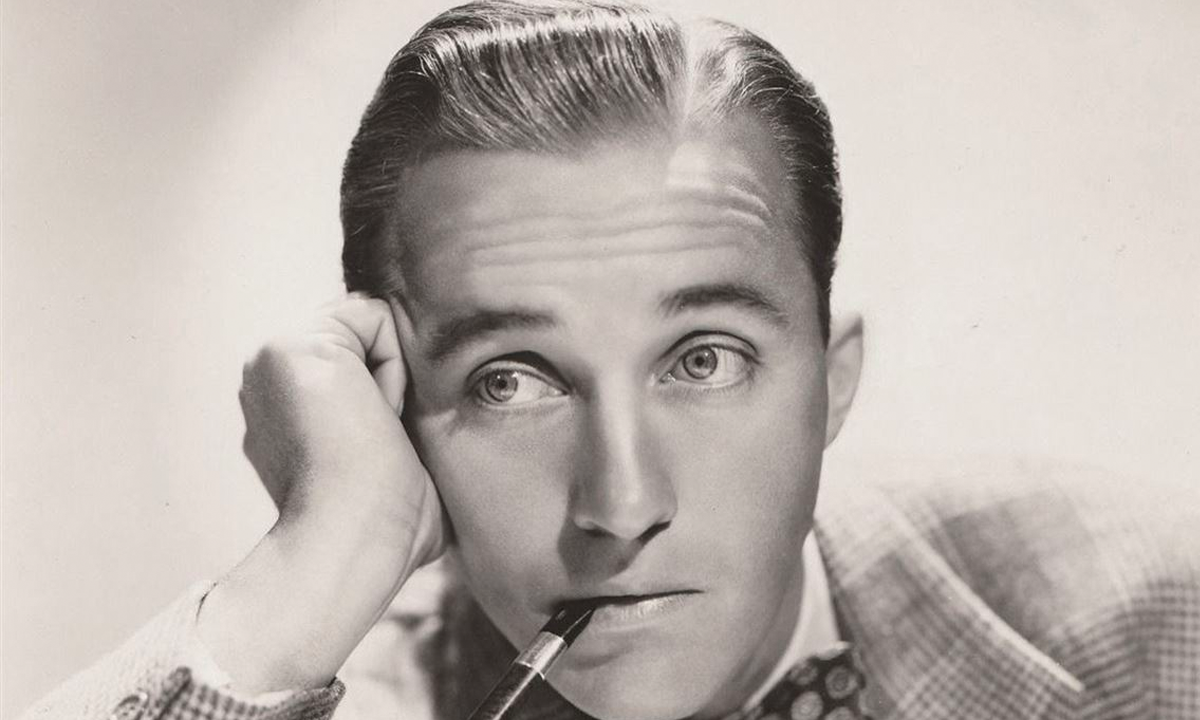The first Native American to be Vice President of the United States of America was a Republican. Charles Curtis was born in the Territory of Kansas to a Kaw Nation mother and a Civil War veteran. He grew up speaking English, French, and Kaw. Although his mother died when he was three, he spent a significant portion of his childhood with her family on the Kaw Indian reservation while his father fought and was imprisoned during the Civil War. His childhood nickname was “Indian Charley”. He later moved to Topeka to live with his paternal grandparents while attending high school.
Both his grandparents had a profound effect on Charles Curtis encouraging him to pursue his education. After high school, he worked part-time in a well-established law firm as an intern “reading law” until he was able to pass the bar exam in 1881. This was the established method of obtaining a law license before the dawn of law schools.
Charles Curtis entered politics in 1893 with his election to the House of Representatives. He was subsequently re-elected for six terms. He resigned in 1907 after being selected by the Kansas legislature to fill the US Senate seat left vacant by Senator Joseph R. Burton. At the time, the Kansas legislature voted to elect Charles Curtis to serve the next full term of the US Senate. At the end of that term in 1912, he was unsuccessful in getting the Kansas legislature to reelect him to the US Senate. After the passage of the 17th Amendment, he was elected to the US Senate in 1914 by the popular vote. He was re-elected for subsequent terms and remained in the US Senate until 1929 when he resigned to become the Vice President of the United States. His leadership in the US Senate was renowned as the Republican Whip from 1915 to 1924 and as the Senate Majority Leader from 1925 until his resignation in 1929.
In 1928, he ran on the Republican ticket with Herbert Hoover as Vice President. As fate would have it, soon after he took office, with the crash of 1929, the Great Depression set in. He promoted the idea of a five-day workweek with no wage reduction to promote job sharing and reduced unemployment. The negative impact of the Great Depression led to the defeat of the Republican ticket in the following election. Charles Curtis returned to private law practice.
Charles Curtis time in the House of Representatives was controversial. Based on his personal experience on the reservation, he saw it as beneficial to Native Americans to become educated and assimilate into general society. As a result, while in Congress, he authored and helped pass the Curtis Act of 1898. This legislation completely extinguished Indian land titles which allowed for Kansas to become a State. The communal lands were allotted to individually enrolled tribe members of various tribes. The tribal courts and self-government were also eliminated. The native populations were encouraged to accept individual land titles and agree to citizenship as a means of assimilation. This gave enrolled members private property rights and all of the rights of US citizenship.
Charles Curtis also has the distinction of being the first Vice President to use the Bible to take his oath of office in the same manner as the President. He is also the first Vice President to be unmarried when he took office as his wife passed away in 1924. He took his half-sister to Washington DC to serve as his hostess.
The Republican Party has always been the party of opportunity, allowing anyone from anywhere to work their way to a place of prominence in the party based solely on principles and character.




